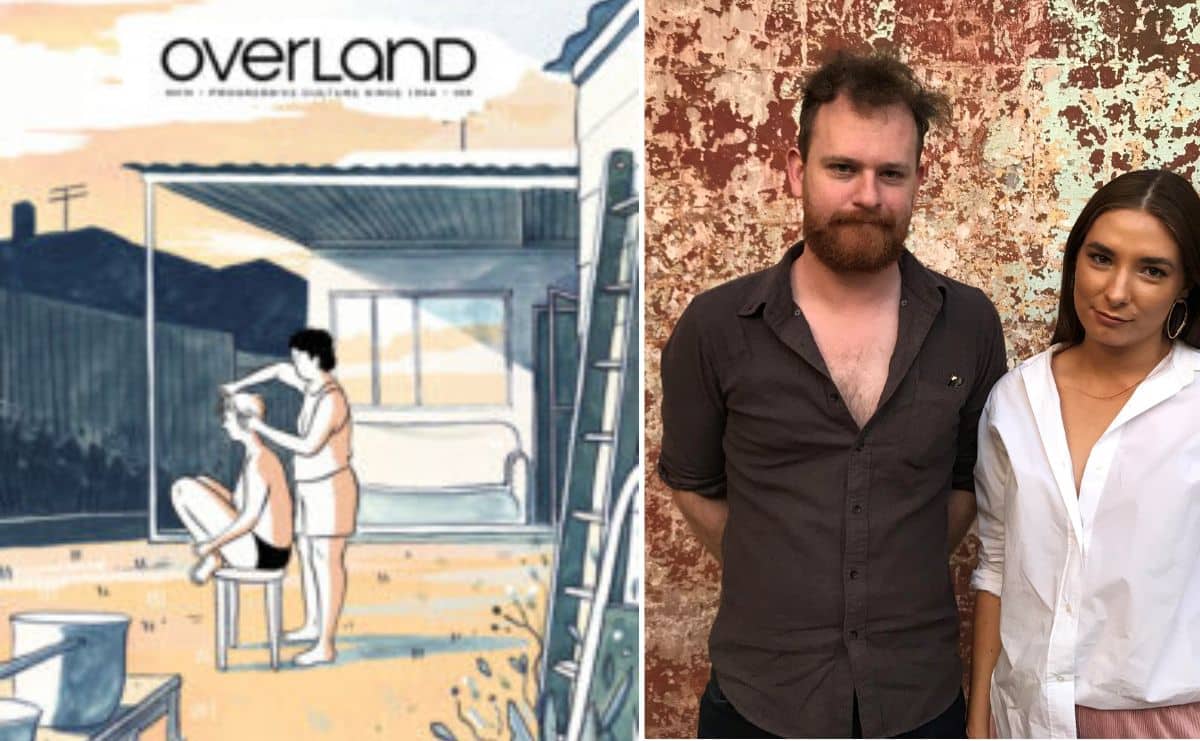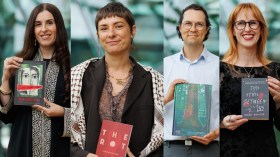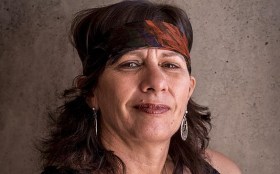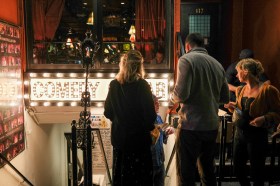My first reaction upon reading the latest issue of Overland was to renew my subscription which, for no reason I can remember, had been allowed to lapse. This is, after all, a journal of great interest to anyone who enjoys reading and writing.
A review of a literary magazine is like evaluating jewels in a jewellery box. There is the box to assess and there are the jewels it contains. So first a few comments on the packaging of issue 249: printed elegantly on pale blue and dark blue paper and illustrated inside with a delicate touch by Stephanie Ochona with intriguing cover art by Lee Lai, it begs to be enjoyed.
Both the presentation and the content are a credit to the editors, who emphasise their alliance with their readers by signing off on their short but erudite editorial not with ‘Yours truly’ but with the more striking ‘Solidarity’.
Issue 149 opens with a gem of an essay by Elias Greig, who mercilessly dissects Heather Rose’s Bruny. From unpacking how it panders to ‘Australia’s deep-seated anti-Asian racism’ to observing that the novel eclipses the entire 40,000-year history of the Nuenonne people in Bruny, Grieg’s piece serves as a brilliant, scathing antidote to the general glowing reception Rose received at the time. For fun, the eager reader may wish to read or re-read Bruny, or at the very least refer to Nicola Heath’s review of it in ArtsHub.
‘A fried egg in space’ is the title Bonnie Etherington gives her essay about getting a ‘benign’ tumour removed from her brain one day after Trump supporters stormed the Capitol Building in Washington. This essay is a frank account of coping with a life-threatening disease, but it is also about wordless perceptions, the power and limitations of language when one is forced to confront the unthinkable.
EJ Clarence shares their experience about a mother who reared them and a mum who birthed them. Another very powerful voice from one of the more than 100,000 children of Australia’s Forced Adoption Policy, Clarence’s essay is called ‘Dovetails’, an ironic reference to the fact that when an adoption is forced, nothing will ever fit properly again.
Natalia Figueroa Barroso’s essay is about being bilingual and the many aspects of language. She crams massive amounts of information, opinions and anecdotes into just a few pages; the result is interesting if somewhat disjointed.
Apart from the essays, of course, Overland boasts a thoughtfully chosen selection of poems and a number of short stories.
Poetry is arguably a form of music and, like a lovely melody or catchy tune, invites frequent repetition. All the poems in this edition fit that bill, with my favourite being Angela Costi’s stunning and politically astute spotlighting of just one aspect of the discrimination faced by women in the legal profession – ‘What to wear to a day of “civilized warfare”’.
The short stories included in this edition all take place in contemporary Australia. Rob Johnson’s ‘Uncle Dom’ includes a memory of what so many children have suffered: being forced to eat good food they dislike. The chicken fricassée he (understandably) rejects recalls the Irish stew I abhorred as I child; most if not all readers will relate with their own memories of a food they found repulsive.
The most poignant of the four stories is ‘Aftermath’ by Tim Loveday, which captures the feel, the smell, the horror, the loss all due to a bushfire that has swiftly come and gone.
Read: Exhibition review: Making the Metro Tunnel, Domain House
Regular readers of Overland will not be surprised at the continuing high standard of this issue, while new readers are likely on the way to becoming regular ones. For the quality of its poetry and short stories, but especially for the exceptional and thought-provoking essays, this journal and its contributors deserve no less.
Overland, edition 249, edited by Evelyn Araluen and Jonathan Dunk
Price: $19.95






